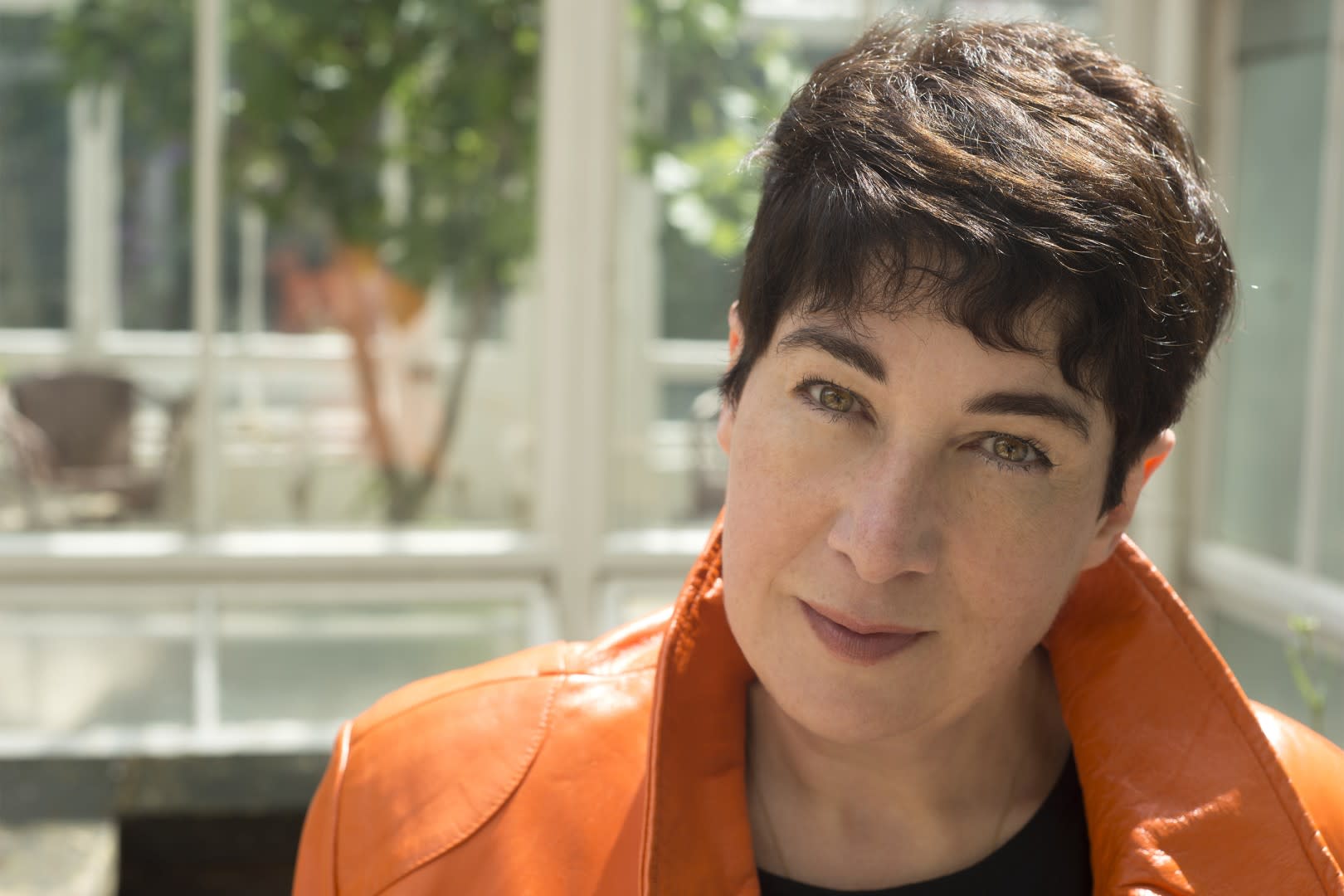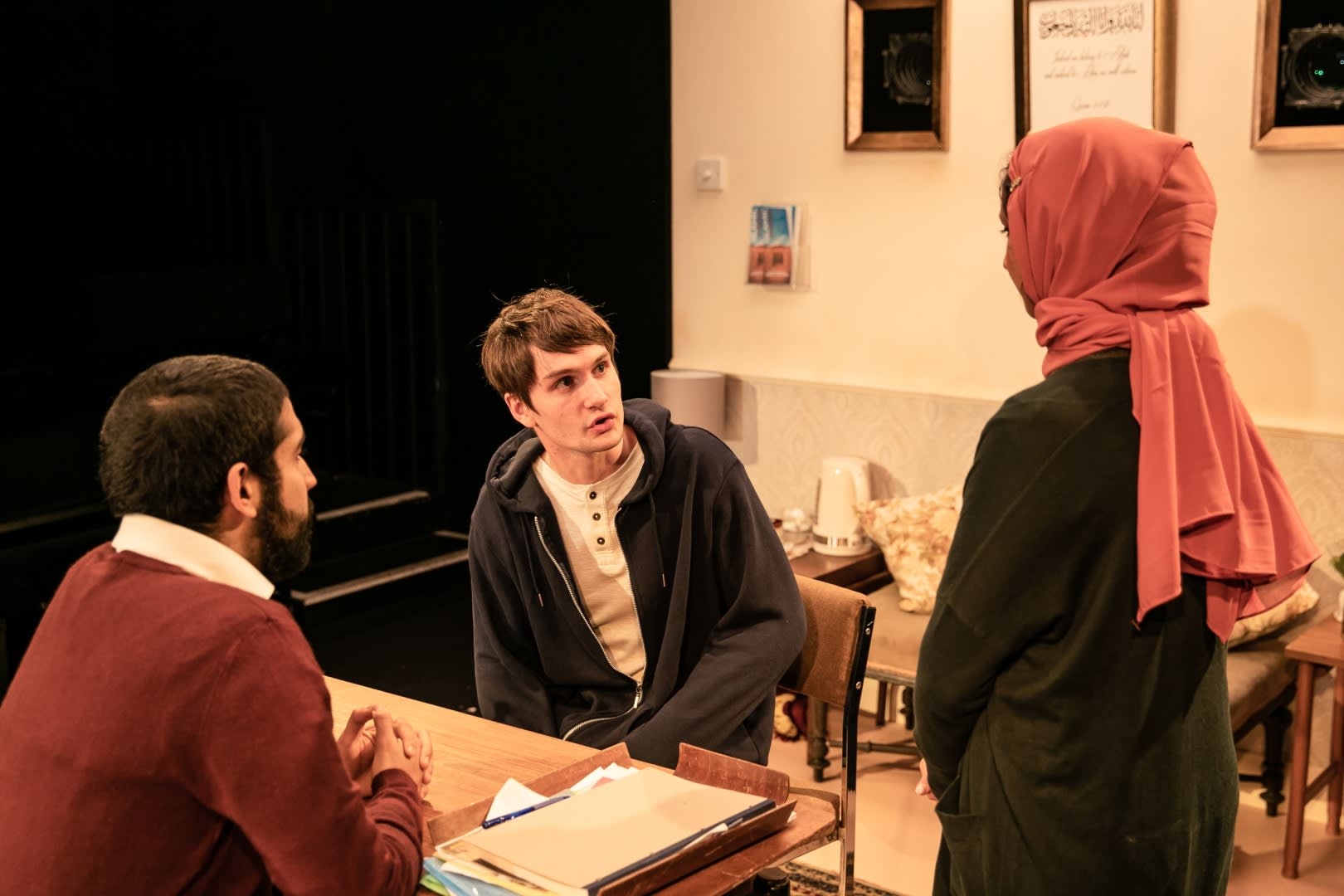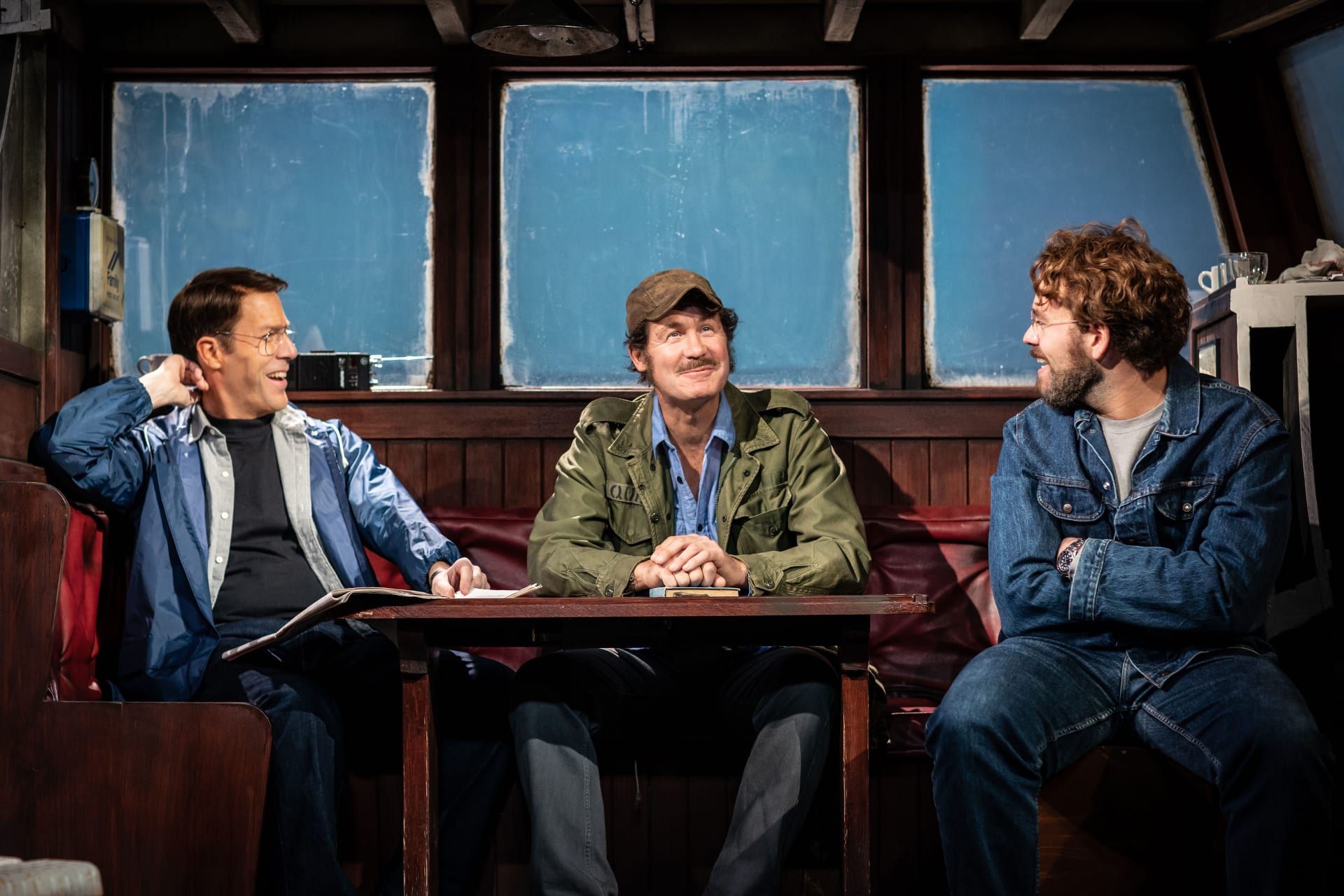The FT Weekend Oxford Literary Festival 2019 welcomes author Joanne Harris, talking about her life, work and return to her best-known characters with new book The Strawberry Thief – the fourth novel in the series which opened gorgeously with Chocolat 20 years ago. This year Harris – also flautist and singer in the #Storytime Band – will receive the festival’s honorary fellowship as well. Here Sam Bennett asks her about the standards of Paris and just how progressive Britain really is.
I’ve been listening to you read Chocolat on my way to work these past couple of days, and twice I’ve caved and bought myself chocolate before getting into the office. Did you have to limit yourself per chapter as to how many times you wrote evocatively about sweet treats so you wouldn’t cave too?
Honestly, no: when I’m describing food I don’t feel the need to eat a lot (in the same way, when I’m writing about murder, I don’t get any more homicidal than usual). Although I did drink a lot of tea.
I once interviewed Alicia Drake, who wrote I Love You Too Much, set in Paris. When you live there, she told me, you have to meet its standards. “You have to be up to scratch. You have to make an effort every time you go out. If you go for dinner you have to be entertaining … You have to live up to Paris with your silhouette.” Does the same apply to small French towns and villages – places like Lansquenet-sous-Tannes where you set the Chocolat series?
I’m not even sure if it really applies to Paris: certainly I’ve never seen any particular sign of it when I’ve been living there. There are certainly a lot of elegant people there, but that’s equally true of London, New York, Prague, Moscow and Milan. I think Paris (and France in general) is filled with nostalgic and hopeful stereotypes, but real French people know the difference between real life and Amélie, and alter their expectations accordingly.
How involved were you in the film of Chocolat?
I had a courtesy involvement, which meant that I was on set for some of the time, and people (usually Juliette Binoche) sometimes asked my advice – on quite an informal basis – but generally authors don’t have any say in the adaptations of their books, once the rights have been sold.
It’s 20 years since the first novel came out – since then have enough people in Britain learnt not to judge and mistreat those who are different from them?
Obviously not. Brexit has proved that there’s just as much intolerance, rage and stupidity in Britain as there always was (and the current lurch to the far-right in global politics confirms it’s not just Britain).
Is it easier for aspiring writers to get published now than when you first set out?
It’s easier for them to find an audience for their work as self-published authors, but harder for a young writer to make it as a traditionally-published author. Large publishers have become far more risk-averse than they used to be, which means that they’re more likely to publish something that they see as a commercial certainty, and less likely to take a chance on something new.
How have you dealt with being an author in this digital age?
I’ve adapted to include digital platforms like Twitter and Instagram into my day-to-day writing life. It’s very hard to participate in an evolving literary landscape without taking an interest in the things that drive the readership.
Do you keep a scrapbook or something similar?
Notebooks, mostly: for my day-to-day observations, and notes and drawings from my travels.
This is our Women’s Issue. Name three women you think have changed the world via literature or otherwise.
Ada Lovelace, whose work brought us algorithms, and who was the first to understand the true potential of computers. Rosa Parks, whose courage marked the end of an era of American white supremacy. And Michelle Obama, whose intelligent and compassionate influence continues to temper the rise of America’s far-right.
Name one different woman who’s changed your world.
My great-grandmother, Marie Sorin, born from a peasant family, married at 16, widowed at 18 with two children, left to run a farm alone in rural France during WWI: one of the great influencers of my childhood, and proof of the strength and determination of which women are capable.
Do you get nervous appearing at literary festivals?
Not as a rule, no. I sometimes get a little stage fright when I do musical events with the #Storytime Band (singing is still a little nerve-racking); but I’ve been doing festivals for over 20 years, and I find them very enjoyable.
What can you tell us about your new book?
The Strawberry Thief is a continuation of my Chocolat books. It may not be the last one, but it is an important punctuation point in the cycle.
Joanne Harris: The Strawberry Thief and Honorary Fellowship of Oxford Literary Festival | 7 April, 4pm | Sheldonian Theatre









